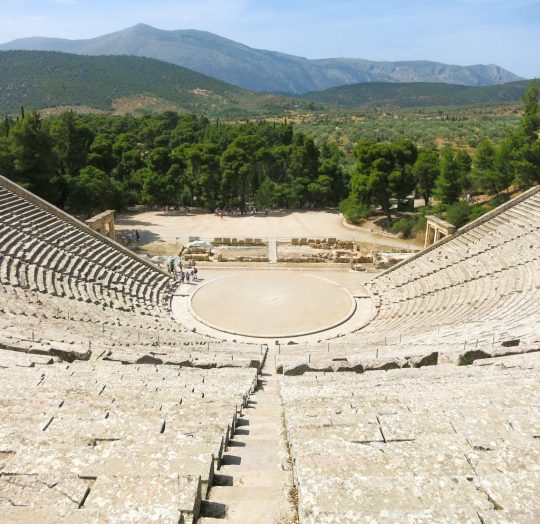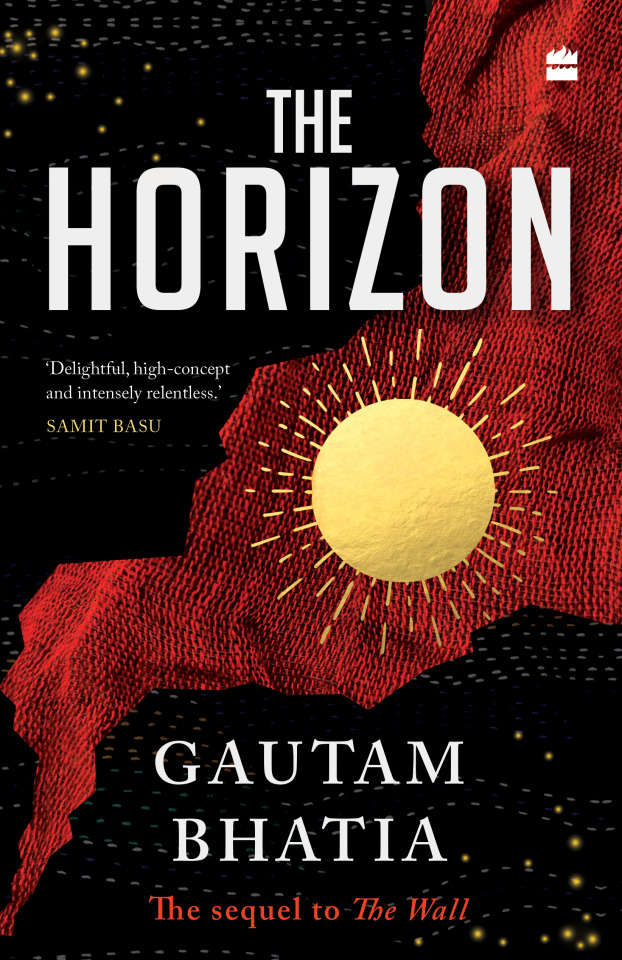#socratic method and business
Explore tagged Tumblr posts
Text

Our hotly anticipated 2025 CritWitchCon is in the works! And we'd love some of you - yes, you - from our community to be a part of it.
CRITWITCHCON2025
A *virtual* convention for science-minded, agnostic/atheist, secular, skeptical Witches and seekers around the world!
Dates:
Friday September 26-Sunday September 28, 2025
Are you interested in speaking during the Con? Sharing your passion for things thoughtful and witchy with a world-wide community of #ScienceWitches#SkepticalWitches#AtheistWitches#SecularWitches#AgnosticWitches and other critical thinking seekers?
This years theme is: Critical Connecting: Conscious Communication in an Often Conflicted World
Some topics we have tentatively mapped out include:
Cauldron Talks or Fireside Chats: Building Bridges; From Different Ends of the Broomstick; Preserving History - Queer and Witchy
The Scientific Method and Building a Craft (Explore, Experiment, Learn, Repeat)
Panels: Synesthesia; red flags in witching/witch adjacent communities; mediumship & ghosts panel/discussion; gender in witchcraft
Practice In the Craft Workshops (ex: Socratic method, story telling, seed balls, shamble spells, weaving circle webs, enchanting objects, Origami and kirigami, letter locking, DIY spirit board, plant dyes & herbal correspondences, cleansing demos, warding, and more!)
Movement Sessions: led stretching, warm ups, or group dance
Book Recommendations: Non-witch books that have informed your craft/practice
Something else! If there's another topic that fits with our overall theme, tell us about it in your application!
Interested in speaking on one of these topics? Or, have a possible topic that aligns with the theme? Apply here to be a moderator, speaker, or panelist!
#theCTWC#CriticalThinkingWitchCollective#SASSWitch#CritWitchCon#WitchLife#AtheistWitchcraft#SciWitch#witchblr#witchcraft*#pagan#paganblr
16 notes
·
View notes
Text
Characters and Berries in The Hunger Games
Gale -> Blackberries
He plucks a few blackberries from the bushes around us. “And may the odds —” He tosses a berry in a high arc toward me.
In folklore blackberries are associated with bad omens. They can also symbolize haste and remorse. There’s a 1966 poem Blackberry-Picking by Seamus Heaney about growing up and loss of innocence.
Madge -> Strawberries
When we finish our business at the market, we go to the back door of the mayor’s house to sell half the strawberries, knowing he has a particular fondness for them and can afford our price. The mayor’s daughter, Madge, opens the door.
Strawberries often symbolize purity, passion (fuel for Gadge and Kadge shippers), and healing (Madge delivers the Morphling after Gale’s whipping).
Rue -> Unfamiliar Berries
I roll an unfamiliar berry in my fingers. “You sure this is safe?”
“Oh, yes, we have them back home. I’ve been eating them for days,” she says, popping a handful in her mouth. I tentatively bite into one, and it’s as good as our blackberries. Taking Rue on as an ally seems a better choice all the time.
These berries are never identified, so bear with me here…
We know Peeta mistakes nightlock (also not identified) for Rue’s berries, but that nightlock is toxic and Rue’s are edible. We also know Nightlock berries are dark (the dark berries glisten in the sun) and Rue’s berries are round (I roll an unfamiliar berry in my fingers), so two potential options are Elderberry or Blackcurrant.
In pagan traditions Elderberries are associated with Faerie realms - (fitting for the magical wisp of a girl who wore wings to her interview.) They heal; and are associated with breaking curses (Rue’s death has forced me to confront my own fury against the cruelty, the injustice they inflict upon us.)
Despite health benefits, in the middle ages Elderberries began to be associated with grief and sorrow.
Blackcurrants are often associated with protection (Here it’s safe, here it’s warm Here the daisies guard you from every harm)
They are also associated with gathering courage, specifically before going on a solitary journey.
Blackberries (bad omens) are referenced in the description of the taste of Rue’s berries.
Regardless of the berry, they also reinforce Katniss’s decision to take Rue on as an ally (Taking Rue on as an ally seems a better choice all the time.)
Peeta - Nightlock
My father’s voice comes back to me. “Not these, Katniss. Never these. They’re nightlock. You’ll be dead before they reach your stomach.”
Nightlock is likely based on two real ones: Nightshade and Hemlock.
Unsurprisingly, toxic Hemlock often has negative associations, however it is also associated with Socrates. Socrates was convicted of impiety, but refused to renounce his beliefs; Hemlock was his chosen method of death which could be viewed as either rebellious and/or a noble sacrifice. “Scholars surmise that Socrates conceived of his death as a freedom of his soul from the unreasonableness of humanity and the confines of his body.”
Nightshade has been suggested as the poison used in Romeo and Juliet (fitting for the star-crossed-lovers) and Macbeth (poisoning that lead to a civil war)
Thank you to @wistfulweaverwoman for assistance researching! Other interesting [x][x][x]
#katniss everdeen#thg#the hunger games#peeta mellark#madge undersee#gale hawthorne#rue#thg meta#please feel free to send me corrections#strawberries#blackberries#nightlock
320 notes
·
View notes
Text

FLOSTRE [addressing the ventriloquist's dummy on his knee]: You don't think much of the pre-Socratic philosophers, do you?
SOCRATES: Just a bunch of clowns spouting nonsense. The Sophists were useful, though.
FLOSTRE: How so?
SOCRATES: Well, I suppose you've heard of my Socratic method?
FLOSTRE: Who hasn't?
SOCRATES: Right. So it went like this: I'd ask some preposterous leading questions, and the other person would have to keep saying something like "Surely that is true Socrates," until they ended up agreeing to something quite ridiculous and making themselves look like complete fools.
FLOSTRE: I hadn't thought of it exactly like that.
SOCRATES: That's how it went. So you can see that it was pure show business. A crowd would gather for the laughs, and on a good day I'd make plenty of drachmas passing the petasos afterwards.
FLOSTRE: The what?
SOCRATES: Hat, to you.
FLOSTRE: And hats off to you, too. What's that got to do with the Sophists?
SOCRATES: I had to have a straight man. Sophists made for great stooges.
[A commotion off-stage. Moe, Larry and Curly run on from left. Moe stops, the other two bump into him. He turns and slaps both of them with a single motion. They line up expectantly.]
MOE: Did someone call for stooges?
CURLY: We're the orig.
[Moe strikes him on the top of the head.]
MOE [addressing Flostre]: At your service. Do we do the act now?
FLOSTRE and SOCRATES in unison: No.
CURLY [disappointed]: No?
FLOSTRE: No.
LARRY: See, I told you we could finish the hand.
[The stooges stand in silence for a moment. Moe looks grim, jerks his head towards the wings. The three of them march off briskly in single file.]
SOCRATES: What did you bring those idiots for?
FLOSTRE: We couldn't get Wittgenstein.
SOCRATES: Who he?
FLOSTRE: You don't want to know.
SOCRATES: No I don't. What I want to know is "Where are the dancing girls?"

#novelties and notions#writing#writers on tumblr#emil flostre#philosophy#stand-up philosopher#history of philosophy#ventriloquist's dummy#socratic method#socrates#fiction#the three stooges#spoof#parody#stooges#where are the dancing girls#vaudeville#humor#sophists#philosophers#moe curly and larry#whimsy#whimsicore#ancient greece#original content#original writing
17 notes
·
View notes
Note
alternately: never does the show say in-dialogue that chase is an intensivist. so what if he never was? almost everything we see him doing is stuff that a surgeon would be able to do.
doing surgical training and then taking a fellowship wherin he doesn't need to do any surgery is not NOT in character for chase.
Unfortunately, they do say it a couple of times in S1:
Maternity:
HOUSE: Chase, you’re the intensivist. How many [blood tests] could we do before we risk exsanguinating the kids?
Socratic Method:
HOUSE: I have a headache. It’s my only symptom. I go to see three doctors. The neurologist [looking at Foreman] tells me it’s an aneurysm, the immunologist [looking at Cameron] says I got hay fever, the intensivist… [looking at Chase] can’t be bothered, sends me to a shrink, who tells me that I’m punishing myself ‘cause I wanna sleep with my mommy.
(btw, I do love that little line. Cameron and Foreman will spend time diagnosing, but Chase is way too busy. He even makes a face like "good point, House.")
Additionally, in S1 in particular, Chase is always the one stuck with the critically ill patients, like the babies in Maternity or the teenagers in Poison, which isn't really surgical care but, you know, intensive care. That said, I absolutely agree with you that taking a fellowship that has no use whatsoever with his training does seem in character for Chase. Hell, I can imagine that diagnostics could be useful in an ICU setting, but most of the time he's going to know what's going on with his patients already working there. It still might be just for fun.
17 notes
·
View notes
Text
9 notes
·
View notes
Text
Socrates' Philosophy: A Legacy of Questioning and Self-Discovery

Socrates' philosophy, like the barefoot gadfly he was often called, continues to challenge and inspire thinkers even today. Unlike his contemporaries who proclaimed definitive answers, Socrates adopted a unique approach – he questioned. Through relentless inquiries and thought-provoking dialogues, he ignited a fire of intellectual curiosity, urging individuals to examine their beliefs and embark on a lifelong journey of self-discovery. This blog post delves into the core principles of Socrates' philosophy, explores his enduring legacy, and examines some of the criticisms surrounding his methods.
A Life Dedicated to Questioning: Unveiling the Socratic Method
Born in Athens around 470 B.C.E., Socrates dedicated his life to philosophy. He wasn't content with simply accepting information; he craved deeper understanding. This pursuit led him to develop the Socratic Method, a revolutionary approach to learning that emphasized questioning and dialogue. Imagine engaging in a conversation where every statement is challenged, every assumption is dissected, and every idea is rigorously examined. This is the essence of the Socratic Method, a method that continues to be employed in various fields, from education and law to therapy and business.
Cultivating Virtue: The Path to a Fulfilling Life
Socrates' philosophy extended beyond the pursuit of knowledge. He believed that true happiness stemmed not from external factors, but from cultivating virtues. These virtues, such as wisdom, courage, justice, and piety, were considered essential for living a good life. He advocated for virtue ethics, a philosophy that emphasized the continuous development of these virtues through self-reflection, learning, and striving to do the right thing.
Beyond the Known: Glimpses into Socrates' Metaphysics
While Socrates' philosophy primarily focused on ethics and epistemology (the study of knowledge), he also hinted at potential views on metaphysics, the study of the nature of reality. Scholars suggest he may have entertained ideas about the immortality of the soul, as evidenced by Plato's portrayals of Socrates engaging in discussions about the soul's potential separation from the body.
A Legacy that Endures: The Impact of Socrates' Philosophy
Socrates' philosophy left an undeniable mark on Western thought. His students, Plato and Xenophone, became philosophical giants in their own right, building upon his foundation and shaping the course of philosophy for centuries to come. The Socratic Method continues to be a valuable tool for fostering critical thinking, self-reflection, and open dialogue. Even in the age of information overload, Socrates' emphasis on questioning and self-examination remains more relevant than ever.
Criticisms and Enduring Relevance
Socrates' philosophy is not without its critics. Some question the potential for manipulation inherent in the Socratic Method, where the questioner could potentially steer the conversation towards a predetermined conclusion. Others raise concerns about the method's reliance on the expertise of the questioner and the risk of leading someone down the wrong path.
Despite these criticisms, Socrates remains a towering figure in the history of philosophy. His legacy reminds us to embrace the power of questioning, challenge our assumptions, and strive for a deeper understanding of ourselves and the world around us. Whether you're a seasoned philosopher or simply curious about living a meaningful life, Socrates' philosophy offers timeless insights that continue to spark thought and inspire generations.
3 notes
·
View notes
Text
I'm not a researcher or someone who knows what I'm talking about, but I have a theory that hostile people are online more because they are unable to make friends irl.
This is the first time I've opened this app for more than a minute or so for like a month. I'm busy. In addition to working full time, I have a bunch of hobbies I have friendships to maintain, I go to therapy, I maintain my romantic relationship, etc. When I was more online, I was working less and was in school, so I saw my friends all the time. I was also actively being abused by my parents.
I'm argumentative but in a very pro-social way. I learn best by engaging in the socratic method, so I often ask a question. Then a few exchanges in I'll realize this is an argument. I also find myself defending people (let's be real mostly women) from callout culture all the time. I find that people online are much more ready to attack for no reason.
This also explains why we have the same discourse year after year about appropriate dress for pride, unhealthy relationships in fanfiction, and of course saying anyone who is christian is evil because some (ironically very vocal but not representative) christians are homophobic so obviously any other christian must also be homophobic. These are just a few examples, but time after time, I find myself thinking, "Do you have any friends? Have you met another person?"
I also think this is why bots are so effective at changing the narrative. The people most online and most willing to be an asshole online have no real friends because they're simply that annoying, and therefore, their comment section is the only thing validating them. Remember when Russia invaded Ukraine, and everyone said, "Why isn't the mainstream media covering war when it's people of color?" They were, they are, they have done so for a very long time. If your personal algorithm at the time only had coverage of Ukraine at the time, that's on you, honey. Journalists were literally risking their lives on the daily to cover global conflicts outside of Ukraine while people whined on the internet about how no one cares. And I 100% believe this was started by russian bots in comment sections. There are multiple instances of bot campaigns to turn the public's ire onto celebrities (you know the cases I'm referring to) it can only be effective if people have so little attachment to humanity that they need to feel supported by their followers.
When I was really struggling with my mental health, getting into an argument online would make me upset for days. I would feel horrible about what was said to me. Now I just try to be my own little bot and return nuance to the situation. I also no longer argue with people who clearly didn't read what I said. I remember one time I said you could put moisturizer OR vaseline on your face at night to prevent acne (I have extremely strong opinions about skincare) and a bunch of people replied saying vaseline isn't a moisturizer. I never said it was. That kind of bad faith response or just general lack of reading comprehension literally just gets a "not what I said please learn to read" response from me now when before I would clarify and explain and close read everything both me and the responder would say. Again, this would cause days of frustration and anxiety for me.
I think some people feel the exact opposite. I think they enjoy being right and often enjoy setting their followers on people.
All of this is consistent with the fact that online conversations do not translate into real-life change. Polls and opinion pieces, etc, consistently underestimate how many people are right-wing. That's because we internet dwellers perceive social media as universal where actually a lot of people are not using it regularly and are doing far more socializing in life. The majority of people on tiktok are simply consuming media not posting. The majority of people on instagram are posting normal life updates once in a while. Even on platforms like Twitter (or its many offspring) are consuming far more than they are posting. There are also huge swaths of people who aren't on social media at all.
This also explains why social media companies are always pushing engagement via outrage. The people most likely to engage in general are those most easily outraged. That kind of person likely has some trouble socializing in a positive way in real life.
Unfortunately, a lot of the folks most online are children, young adults, and folks in their early twenties. Previous to social media, if you couldn't be kind and polite while engaging with others, you'd quickly learn those skills to avoid total isolation. These days, you simply have to go online to find someone who will agree with you. It sucks because there is value in online spaces. I genuinely believe that I would not be alive today without the fandom culture on tumblr in my teen years to distract me while being abused. At the same time, it also caused a lot of distress for me, and I'm sure I was kind of an asshole on here at times. There is a way that social media can help create community, but it can also cause more isolation by promoting anti-social behaviors. And I honestly think you can't get one without the other to some degree. I had to unlearn a lot of things the internet had taught me as a kid, and I was mostly engaging with a chronological feed without many of the harmful effects of social media we have now. It is so much easier for someone who is rude or cruel to find reinforcement for their anti-social behaviors.
there was a great study a few years that went into the whole "ppl online are bigger jerks than irl cuz theres a virtual wall and no repercussions" and the researchers were expecting to see that be the case but it turns out that people who were really angry or argumentative online were also found to just be assholes in person and people who were pretty patient and nice online were found to be patient and nice in real person as well
and it just debunked that whole cynical idea that people will naturally be mean if theres no punishment for it
90K notes
·
View notes
Text
ChatGPT is testing a mysterious new feature called ‘study together’
**Title: Chatbots: The New Socratic Method for Freelancers?** Have you heard? Chatbots are trading in answers for questions – like that friend who keeps asking, “But how do you feel about that?” Imagine a world where your chatbot is less “Google” and more “Socrates.” It’s like having a mentor who’s also your coffee buddy but with fewer calories. For freelancers navigating the online business realm, this means more thinking and less mindless clicking. Who knew AI could be so philosophical? #Technews #freelancer #businessonline (Source: [Your Source Here])
0 notes
Text
youtube

youtube

youtube

youtube

youtube

youtube


youtube
youtube

youtube
youtube


#Spotify#Youtube#Pan#Door#@#EA|AA#aaA#EA A#Æ#Å#Ã#Ä#Ā#Ma*m#M#o#CI dd#Sì-R#'R#*R#|®#9\#P#RIP.c#-rip.o#©:Åff-& :9&9: H³ 878 18*t[🔵🎳🎱⛳⚾🏀;🏉🎽🚴🤹⚽🎟🎈🎄🎆🎏🎞🎫🎀🎁🎋🎎⛄🕘🚽⚓🛎🚪🛌💺🚦🚢🚥🛬💺🚁🚪🚪🚪🛎🚪🚁💺🛬🛩🚟⛽💈🎪🎭🌌🌉🎰🎡🚂🛤#D-: < >#[...]#SoundCloud
1 note
·
View note
Text
Embrace Timeless Elegance with a Black Suit and Black Saree
Black is one of those colours that will still be in fashion. A black saree or a black case for females may simply complete any outfit look, yes, whether it's for a traditional liaison or a easy get-together. Every lady should incorporate both of these pieces in her storeroom since they are smart, stylish, and adaptable. You can model these classic works in so numerous methods, and they look excellent for any occasion they give you confidence and charm.
Women need to have a black suit.
A black suit for women is A lady may get a lot of use out of Socrates's clothing. This suit makes you look put-together and professional, no matter where you're going, business meetings, formal occasions or nights out. A black case that works perfectly and has a smart design makes you look powerful and stylish. The black suit is totally pliable and can be paired with anything from a uncomplicated blazer and slacks to a sophisticated dress suit. This makes sure that a woman always looks put together. It's a wonderful investment because it never goes out of style.
The Black Saree: The Most Elegant Thing
A black saree is a beautiful selection of dresses that combines old and contemporary techniques. The black saree is a definitive item of attire that can be worn to marriages, formal occasions, and other night events. A black saree is pretty since it is simple and classy. No matter what kind of embroidery, sequins, or lace is on it, the black saree always completes any event look more classy. You may wear it with a lot of other blouses, from the most traditional to the most modern, so it will always glance good.
How to Put Together a Black Suit for Women
Women can wear a black suit in a numeral of other ways. For a more traditional watch, you might wear a traditional black suit with a silk blouse. For a more colloquial look, you can model it with a vivid tee or a checked top. Supplements are quite vital for making an outfit look nicer. A lovely scarf or a striking necklace might add some colour to a black suit. The style is complete with sleek shoes or flats. The black suit is good for a number of different events, which makes women feel good about themselves all the time.
The black saree is the most useful.
You can wear the black saree in a lot of different ways. You can wear a black saree to a bunch of miscellaneous kinds of occurrences, both dress and informal. The deep black hue goes well with a lot of different accessories, like gold jewellery for a classic glance or diamond earrings for a more modern, pretty approach. The sort of cloth you pick, silk, chiffon, or georgette, also changes how the saree supposes altogether. A chiffon saree that coasts can cause you feel delicate and elegant, while a silk saree that is additional comprehensive energy make you feel glorious and flowery.
Conclusion
The black saree and the black suit for women are both classic looks that will always be in style. They will always be a must-have in any woman's closet because they may be worn to any event. Visit ethnicplus.in to see a wide selection of these fashionable goods. There, current and classic styles join together to make the best mix of old and new clothing.
Find out more today, visit our site.
sharara suit for women
salwar kameez
1 note
·
View note
Text
Plato: Ion
Ion

Plato didn’t just write about Socrates—he knew him personally. As a young man from a noble Athenian family, Plato became one of Socrates' closest followers, drawn to his method of relentless questioning and ethical clarity. Socrates, famously, never wrote anything down, so it was through Plato's dialogues that his voice survived. In early dialogues like Euthyphro, Apology, Crito, and Phaedo, Plato presented Socrates as he lived and taught—wandering Athens, testing definitions, and challenging powerful men on what they claimed to know. These works are as much acts of memory as they are philosophy, written by a student who lost his teacher to a death sentence, but who never stopped asking the questions Socrates set in motion. By witnessing these dialogues, Plato was able to give readers a peek into the concerns of ancient Athenians, and many of those concerns are still important today.
Plato's Ion is a short but provocative dialogue that explored the nature of artistic inspiration and the boundaries between knowledge and performance. In it, Socrates questioned Ion, a celebrated rhapsode—someone who recited and interpreted Homeric poetry in public, garnered accolades, fame, and money for his support of the classics. Ion claimed to understand Homer better than anyone else, but when Socrates pressed him on whether his talent was a form of knowledge, and whether Ion cared or not, he faltered.
For modern readers, Ion challenges us to ask:
Do we confuse eloquence with knowledge?
Can someone be skilled without truly understanding their subject?
Is inspiration enough—or does real virtue require reason?
What Makes A Movie Pretentious - Nick Lyskawa: https://youtu.be/_sUn2m1i4t4?si=5Qrv0HPM-IDQo_Vh
Why Wes Anderson Is The Most Pretentious Filmmaker In Hollywood | Society Reviews: https://youtu.be/hryFzhxaGjg?si=hjWl_Dr8dbuYdoOU
When Stupid Tries to Play Smart - Moviewise: https://youtu.be/cseW9B-Ug3k?si=6LFfdSxKH67z00jU
Socrates was uncompromising in this dialogue, but those who still enjoyed art could separate fact from fiction and understand that inspiration found in art can impart knowledge about human emotion which is what motivates a search for knowledge in the first place: we see others as examples who are on the other side of transcendence. Socrates was very aware of how entertaining the poets could be, and flattery was his way into the debate. "Well now, I have often envied you rhapsodes, Ion, for your art. For that it befits your art for the body to be always adorned and for you to appear as beautiful as possible, and that, at the same time, it is necessary to be busy with many good poets and above all with Homer, the best and most divine of the poets, and to learn his thought thoroughly, not just his words, is enviable. Because one could never be a good rhapsode if he did not understand the things said by the poet. The rhapsode must be the interpreter of the thought of the poet to the listeners, but to do this finely is impossible for the one who does not recognize what the poet means. All these things, then, deserve to be envied...Are you clever about Homer alone or about Hesiod and Archilochus too?"
"ION: Not at all, but only about Homer, for that seems sufficient to me."
"SOC: Why, then, are you clever about Homer but not about Hesiod or any of the other poets? Or does Homer speak about other things than what all the other poets speak about? Didn't he tell about war for the most part, and about the associations with one another of good human beings and bad ones, and private ones and those in public works, and about gods' associating with one another and with human beings—how they associate—and about the events in the heavens and those in Hades and the begettings of both gods and heroes? Are not these the things about which Homer has made his poetry? And what of the other poets? Don't they make poetry about these same things?"
"ION: Yes, but, Socrates, they have not made poetry in a way similar to Homer."
Socrates focused on Ion's experience and wondered how people could be so certain about anything unless there has been a scouring of all available material for comparisons. "Dearest Ion, when there are many men speaking about number and someone speaks best, won't there be someone who recognizes the one who speaks well? Does this same man also know the one speaking badly, or is it someone else? And isn't this the one who has the arithmetical art? What of this? In a situation where many are speaking about what sorts of foods are healthy and a single person speaks best, will it be one man who recognizes that the person speaking best does speak best while another recognizes that the person speaking worse does speak worse? Or will it be the same man? Who is he? What name is there for him?"
"ION: Doctor."
"SOC: Let us say then, in summary, that the same man will always recognize who speaks well and who speaks badly when there are a many speaking about the same things. Or if he does not recognize the one who speaks badly it is plain that he will not recognize the one who speaks well, at least about the same thing. Then the same man turns out to be clever about both? Don't you affirm that both Homer and the other poets, among whom are Hesiod and Archilochus, speak about the same things but not similarly, the former speaking well and the others worse?"
"ION: And I speak truly."
"SOC: Then, my excellent fellow, we won't go wrong when we say that Ion is similarly clever about Homer and the other poets, too, since he himself agrees that the same man will be an adequate judge of all who speak about the same things and since very nearly all the poets make their poems about the same things...it is entirely clear that you are unable to speak about Homer by art and knowledge. For if you were able to do so by art, you would also be able to speak about all the other poets too. For presumably the poetic art is a whole, isn't it? Then when someone grasps any art whatsoever as a whole, for all the arts, the same manner of inquiry holds...There is an art of painting as a whole, isn't there? And there are and have been many painters good and poor. And did you ever know anyone who is clever at showing what [certain artists paint well] and what [they do not] but is incapable of doing so concerning the other painters—so that when someone makes a display of the works of other painters, is at a loss, and has nothing to contribute but when he is required to give a judgment about [an artist they know], or any other single painter you please, [or sculptors and musicians], he wakes up, pays attention, and finds plenty to say?"
"ION: No, by Zeus, surely not."
Socrates noticed the excitement that art inspired in people and it was the psychoanalytic glue of imitation of super powers, drama, and characters that were able to move beyond obstacles that no audience member could transcend in real life. A celebration of wish fulfillment. Gods are projections of archetypes for skills needed for survival. The gods show us the way. They appear as role models for imitation that glue in the mind but those images often lack the process on how to gain the necessary skills to get to the finished result. Entertainment motivates action, but unless there's practical experience to learn from, the inspiration doesn't take hold in action because make-believe makes skill acquisition seem easy, so the audience remains passive. Then when you add the effect that imitation had on the audience, you get at the danger that Plato was pointing to: earning money, fame, and power based on lies.
Ego Psychology: Anna Freud Pt. 3: https://rumble.com/v6b5odm-ego-psychology-anna-freud-pt.-3.html
"For it is not art in you that makes you able to speak well about Homer, as I just said, but a divine power which moves you, [like a magnet]. For this stone not only draws iron rings to itself but puts a power in the rings as well to do the same thing the [magnet] does—to draw other rings to them, so that sometimes a very long chain of iron rings is strung hanging one from the other. But in all of them the power depends on this [magnet]. In this way also the Muse makes some men inspired herself, and through these inspired men, others are gripped with enthusiasm and form a chain. All the good epic poets speak all their fine poems not from art but by being inspired and possessed, and it is the same for the good lyric poets. Just as those carried away by [ecstatic imitation of the God-like and powerful] are not in their right minds when they dance, so also the lyric poets are not in their right minds when they make these fine songs of theirs. But when they launch into melody and rhythm, they are frantic and possessed, like Bacchic dancers who draw honey and milk from rivers when they are possessed but cannot when they are in their right minds. And the soul of the lyric poets works in this way, as they themselves say. For the poets tell us, don't they, that culling their songs from fountains flowing with honey and certain gardens and glens of the Muses they bear them to us just like bees, flying as they do. And they speak the truth. For the poet is a light thing, winged and sacred, unable to make poetry before he is inspired and out of his mind and intelligence is no longer in him. For as long as this is his possession every human being is unable to make poetry or oracular utterance. Since they make poems and say much that is fine about things, just as you do about Homer, not by art but by divine dispensation, each is able to do finely only that to which the Muse has impelled him—one making dithyrambs, another encomia, another choral chants, another epics, another iambic verses—while with regard to the rest, each of them is ordinary. For they say these things not by art but by divine power. For if they knew how to speak finely by art about one of them, they would be able to do so about all the rest. On this account the god takes away their intelligence and uses them as servitors along with soothsayers and diviners of the gods so that we hearers may know that these men, who are without intelligence, are not the ones who say things worth so much but that god himself is the speaker and gives utterance to us through them. The greatest proof of the argument is Tynnichus, the Chalcidean, who never composed any poem worth remembering other than the poem which everybody sings and which is very nearly the finest of all songs, being simply, as he himself says, 'a discovery of the Muses.' In this man the god especially shows us, it seems to me, so that we need not be in doubt, that these fine poems are not human nor belonging to human beings, but divine and belonging to gods, and the poets are nothing but interpreters of the gods, possessed by the one who holds each. To show this, the god on purpose sang the finest lyric through the most ordinary poet. Do I seem to you to speak the truth, Ion?"
"ION: Yes, by Zeus, to me you do. For somehow you lay hold of my soul with these speeches, Socrates, and I believe that the good poets are interpreters of these things from the gods through divine dispensation."
"SOC: When you are speaking epics well and most amusing the spectators, are you then in your right mind? Or do you become beside yourself, and does your soul think it is at the scene of the deeds of which you speak in your inspiration?"
"ION: When I speak of something pitiful, my eyes fill with tears, and when of something frightening or terrible, my hair stands on end from fear and my heart leaps."
"SOC: Shall we assert that this man is then in his right mind who, adorned with rich raiment and golden crowns, cries in the midst of sacrifices and festivals, although he has lost none of these things, or who is frightened while standing before twenty thousand friendly human beings, although no one is stripping or harming him?"
"ION: No, by Zeus, certainly not, Socrates, to tell the truth."
"SOC: Do you know then that you work these same effects on most of the spectators?"
"ION: Indeed I do know it very finely. For I look down on them each time from the platform above as they are crying, casting terrible looks and following with astonishment the things said. I must pay the very closest attention to them, since, if I set them to crying, I shall laugh myself because I am making money, but if they laugh, then I shall cry because of the money I am losing."
"SOC: You know, then, that this spectator is the last of the rings which I said get their power from one another through the [magnet]? And you the rhapsode and actor are the middle, and the top is the poet himself, but the god through all these draws the soul of human beings wherever he wishes, transmitting the power from one to the other. And we name this 'being possessed,' and it is very nearly that, for he is held. You are one of them, Ion, and are possessed by Homer, and when someone sings from another poet, you fall asleep and are at a loss for something to say, but when someone utters a song of this poet, you wake up immediately and your soul dances and you have plenty to say. For you say what you say about Homer neither by art nor by knowledge but by divine dispensation and possession...About which one of the things Homer speaks do you speak well? For surely you don't speak well about them all."
"ION: Know well, Socrates, that I do about them all."
"SOC: Doesn't Homer in many places have many things to say about the arts—for example, about charioteering? Tell me, then, what Nestor says to his son Antilochus when he urges him to be careful at the turn in the horse race in memory of Patroclus. And who would judge better whether Homer speaks these words rightly or not, Ion, the doctor or the charioteer?"
"ION: The charioteer, surely."
"SOC: Because this is his art or for some other reason?"
"ION: Because this is his art."
"SOC: For presumably we won't know by medicine what we know by piloting, will we? Nor will we know by carpentering what we know by medicine. Then whoever does not have a certain art will not be able to know in a fine way the things of that art which are finely said or done, will he? Would you or a charioteer, then, know in a finer way about whether the verses you just recited were finely said by Homer or not? And the rhapsode's art is different from the charioteer's? Then according to your account the rhapsode's art will not know everything, nor the rhapsode either."
"ION: Everything, except, the things that are appropriate."
Analysis

Socrates then grilled Ion and concluded that he was a fan of Homer but not an expert. The actor and poet rely on the emotions of the character in a story as they carry out those skills but there's no evidence of knowledge of the skills themselves that would make life better. There is a silver lining in that good art improves from research, otherwise it's escapism. As benign this may be for many, Plato did not find it so because of art's influence on the audience. There were skills indeed on offer with poets but in the realm of techne, or practical knowledge, they were only demonstrated in the realm of writing and art, to make stories beautiful, but not real. "The Ion would seem to be an integral—and therefore authentic—part of what may be called Plato's programme to show that traditional poetry, being mimetic of the imperfect world as we know it, and a fortiori rhapsodes, imitators of imitators, should be rejected, and should not be admitted to a state if that state is to be well governed."
An Introduction to Greek Theatre - National Theatre: https://youtu.be/aSRLK7SogvE?si=SC_K-dSPJ0TgkcqR
Rediscovering Ancient Greek Music: A performance reconstructs the past - Aeon Video: https://youtu.be/UAmuQBnNty8?si=Q4JjFzbK8UArQIlK
This of course was the kind of philosophy that would undermine the world order and so people like Ion who had swagger and confidence, who basked in the glow of the beloved Homer secondarily, he was supported by the Greeks. "In spite of [Socrates'] caution he was finally put to death by the community for investigating the things in the heavens and under the earth rather than accepting Homer's account of them. In the failure of Ion to meet the test Socrates puts to him we see the reason why Socrates was forced to undertake a private study of the things in the heavens and under the earth." Yet his behavior could not be anything but public considering "he chose the statesmen and the poets, [in Apology], because they are men whose very activity implied knowledge of the whole. Thus the commands of statesmen imply that they know what the good life is, and the tales of poets tell of gods and men, death and life, peace and war. Socrates discovered that statesmen and poets knew nothing but that the artisans did in fact know something. They could actually do things such as making shoes or training horses, and by their ability to teach their skills to others they proved they possessed knowledge. Nevertheless Socrates preferred to remain ignorant in his own way rather than to become knowledgeable in the way of artisans, for the latters' knowledge was of partial things, and their pride of competence caused them to neglect the human situation as a whole. However, Socrates did learn from the artisans what knowledge is and hence was made aware that those who talk about the whole do not possess knowledge of it. The choice seems to be between men who talk about the whole but are both incompetent and unaware of their incompetence, and men who deal with insignificant parts of the whole competently but are as a consequence oblivious of the whole. Socrates adopts a moderate position; he is open to the whole but knows that he does not know the answers although he knows the questions. In the Ion, he applies the standard of knowledge drawn from the arts to the themes treated by poetry, thus showing wherein poetry and the tradition fail and what stands in the way of such knowledge."
Jamuura Dialogues - With Hansal Mehta | On The Importance Of Research In Filmmaking: https://youtu.be/iywvdGHDa7c?si=1tdJePhUtzC0dHTO
In a way, Plato didn't dismiss art in total, as long as artists put effort into their research, interviewed and surveyed experts, as well as attempted to acquire first hand knowledge of different forms of techne. Ideally, art that would be allowed in Plato's republic would be the kind that could suggest realistic ways of attaining well being and morality that wouldn't undermine his enlightened polis that maximized the Good. The work of artists would be a bore if they provided days of training in techne, but if they pointed to those who did have practical knowledge, they could provide their techne in how all the pieces of a polis fit together, especially the statesmen, in a way that maximized the Good. This way artists and statesmen wouldn't have to live multiple lifetimes to gather all the practical knowledge of the realm before they wrote a play or drew up a political structure.
The Roots of Political Philosophy: Ten Forgotten Socratic Dialogues - Thomas L. Pangle (Editor) - Plato: https://www.isbns.net/isbn/9780801494659/
Rijksbaron, Albert (2007). Plato, Ion or: On the Iliad.
Lorenzo Ferroni, Arnaud Macé, Platon Ion. Paris: Les Belles Lettres, 2018.
Philosophy: http://psychreviews.org/category/philosophy03/
0 notes
Text
Imagine Academy
Acton Imagine is a learner-driven academy serving students from Kindergarten through 12th grade in Temple/Belton, Texas. The school’s mission is to help children find their calling and equip them to change the world. Rooted in Socratic principles and real-world learning, Acton Imagine offers an alternative to traditional education by fostering curiosity, self-governance, and hands-on problem-solving. Students engage in interactive core learning at their own pace, pursue real-world quests, and participate in apprenticeships. The academy emphasizes character development, gratitude, and purpose, believing that every child is a genius with the potential to lead a meaningful life. Founded by Chip Franks and inspired by Naveen Jain, Acton Imagine promotes values of freedom, purpose, and individualized education.
Business Hours: Mon, Wed-Fri 8:30AM to 4PM, Tue 8:30AM to 5PM Payment Methods: Cash, credit cards Year Est.: 2019
Contact Info:
Imagine Academy Address: 1701 Sparta Rd, Belton, TX 76513, USA Phone: +1 254–535–3227 Website: https://www.actonimagine.org/
Find Us Online:
Facebook: https://www.facebook.com/OurHerosJourney/




#Learner-driven education#Socratic learning model#Alternative education Temple TX#Project-based learning#Acton Academy Temple
1 note
·
View note
Text
Ant Extermination Services in Houston, TX

American Socrates Pest Solutions proudly provides Ant Extermination Services in Houston TX, specializing in roach, ant, and termite extermination. Our team uses proven methods to eliminate pests efficiently and prevent future infestations. With a focus on safety, reliability, and customer satisfaction, we ensure your home or business stays pest-free year-round.
0 notes
Text

Sailing towards the horizon: Review of Gautam Bhatia’s ‘The Horizon’
Gautam Bhatia constructs an intricate and cogent world in the second instalment of The Chronicles of Sumer series
Published - January 08, 2022 04:00 pm IST
As visual media hijack shrinking attention spans, modern-day writers, forced to compete for survival, opt for motion-picture-like storytelling formats with a jackrabbiting cadence. Gautam Bhatia steers clear of the pitfall this poses for literature — in The Horizon , sequel to The Wall , he eases new readers into the complex universe of The Chronicles of Sumer through a narrative full of gravitas and a charismatic kind of solipsism. The layered story unfolds at a pacy gait underpinned by a cinematic feel and lively repartee between characters.
The series has the usual tropes of speculative fiction (SF) — revolutionism, sociopolitical churn, allegory, world-building (including etymologically-sound nomenclature and other markers of a historied fictional civilisation), alchemy, metaphysics. A quick synopsis: Sumer, a walled and self-contained city, is a strictly controlled pre-industrial society stratified by labour and governed by propaganda, which is reinforced by strong-arm methods and preserved through secrecy. Its citizens consist of a conservative faction intent on maintaining the status quo; a group of radical idealists determined to remake their world; and a general populace too busy fulfilling its duties to be of any relevance to the narrative. Just like our world.
Within the broad category of SF, the book is versatile in its scope in terms of genre and tone. Providing chills and thrills are action-packed battle scenes, stunts and dynamic PoV sequences; the solace of poetry is available almost at every turn of the page; philosophical arguments over social and civic reform serve as a throwback to the Greek agorae that birthed the Socratic method and promoted democratic discourse; emotionally-charged relationships frayed by the intensity of their bonds add spice and make the characters relatable; strategic machinations, fluctuating allegiances, inscrutable motives keep readers on their toes; scientifically plausible alchemical magic punctuates depictions of warped reality to remind us that it is a fantasy novel after all. At times, the dialogues strike you as overly self-indulgent and self-important before you remember the high stakes involved.
Scoring high
The very purpose of SF is to reimagine the workings of the real world through the prism of alternative realities, wherein the author and readers can together engage in thought experiments and dissect their ramifications in the safety of a hypothetical environment. The book scores high on this front. Past literary works and historical archetypes lend credibility and a frame of reference to any SF work — the challenge for writers is to decide on the degree of intertextuality and eclecticism. But Bhatia has painstakingly constructed an intricate and cogent world in its own right.
Bhatia himself lists the bibliographical references used in the novel. The series also seems to draw inspiration from venerable works of SF — in the idea of venturing beyond the perimeter of the known world to transcend one’s existential binds, there’s a parallel to The Truman Show ; in the idea of martyring oneself to save one’s people, there’s a link to what drove the cosmonauts in Christopher Nolan’s Interstellar ; the medieval cityscape governed by an elite power centre is reminiscent of King’s Landing from Game of Thrones (including a shout-out disguised as battle cry, “For the Wall!”). The scenes of vociferous debates among Sumer’s policymakers trading barbs and biases pay direct homage to the sessions regularly telecast on Sansad TV.
Have you ever wondered about the boundary between Being and Nothingness? The immutable wall of Sumer sheltering and sequestering its inhabitants from the unknown world beyond serves as an exciting microcosm of this idea. If the axiom of Time can be viewed as an emergent construct (the poets of Sumer seem to reimagine it as an architectural feature manufactured by the divine ‘Builders’ and subject to collapse as such), the notion of Nothingness can be conceived and befriended. That’s a nice piece of metaphysics to chew on and a worthy distraction from all the earthly bickering that goes on, on this side of the wall.
0 notes
Text
It is quite clear that the meaning of Science is not only confounding to the general public who are to misconceptions and stereotypes but also among social scientists where the perspectives of what science is may be contradictory (Bell, Lederman and Abd-El-Khalick 2000, 563-581). There is, however, consensus that it is concerned with generating knowledge through systematic ways as is well put by Singleton, Straits and Straits (1993, 3) that ‘The world lies awaiting for the curious to observe, manipulate, make judgments and understand. They also state that the fundamental question is how this will be done…. Learning which questions to ask and which tools to use is essentially the business of research methods.’ The central issue thus is the research methods of inquiry that science uses i.e. their nature, philosophical framework and role in science. Here, rationalism, empiricism, positivism, interpretivism, logical positivism and logical empiricism are all concepts that have emerged as philosophical underpinnings of research. Research methods have been categorised into either qualitative or quantitative. In social sciences, there is much debate on the supremacy of quantitative methods (based on positivism) or qualitative inquiry that is based on interpretivism (Spratt, Walker and Robinson 2004, 7). This leads to a question on the possibility of a mixed method being better for social science research. To effectively study these aspects, a background of science and its essence will be established first followed by a discussion of the method that is central to the scientific enterprise. The guiding thesis of this study is that a mix-method approach based on integrating interpretivism and positivism (qualitative and quantitative) method may be an attractive method for undertaking social science research. Background A study into the history of science is essentially a study into its philosophical background which enables us to trace the roots of scientific thinking. Hence, it is essential to establish the place of philosophy in scientific inquiry where it is clear that philosophy lies at the interface of the real world and the theoretical world. Here, the real world is the physical one in which we exist and observe while the theoretical world is based on the premise of theorising, hypotheses, ideology and concept-building. From this prospective, philosophy is concerned with relating ideas from theory with the real world, transfer of real world knowledge back to theory and finally the gaining of understanding into the nature of the real world (Lee and Lings 2008, 25), alternatively starting with observation into the real world and ending up with theoretical knowledge. In this respect, the roots of science are traced to the specific time in history. First is when man broke from the tradition of relying on supernatural explanations of the things he did not understand. For this reason, the Milesians are observed to be the first true philosophers. Pythagoras, a Greek mathematician who lived in 571-496 BC insisted that truth should be proved rather than just accepted. Pythagoras and other early philosophers who lived before Socrates provided a useful foundation on the philosophy of science through conceptualising proof and reasoning to generate truth out of observations. Socrates and most of his students such as Plato heralded clear philosophy through questioning and inquiry into observations to a large extent. Aristotle’s ideologies are of main interest to this study since he first established the concepts of deductive and inductive reasoning, hence generalisations which allow for the prediction based on theory. From the age of Aristotle, scientific philosophy was to take a backseat as politics and religion took center-stage for over a millennium, a period during which the main focus of philosophy was politics, morality and theology. It is argued that during the Dark Ages and Church domination, the works of the early philosophers were kept alive only in the Muslim world, and their reintroduction into Latin is what set alight the Renaissance (Lee and Lings 2008, 27). From this period modern scientific philosophy was embroiled in debate over rationalism (knowledge from reasoning) and empiricism (observatory knowledge - humans do not possess innate knowledge), which helps us focus on two fundamental concepts; induction and deduction Read the full article
0 notes